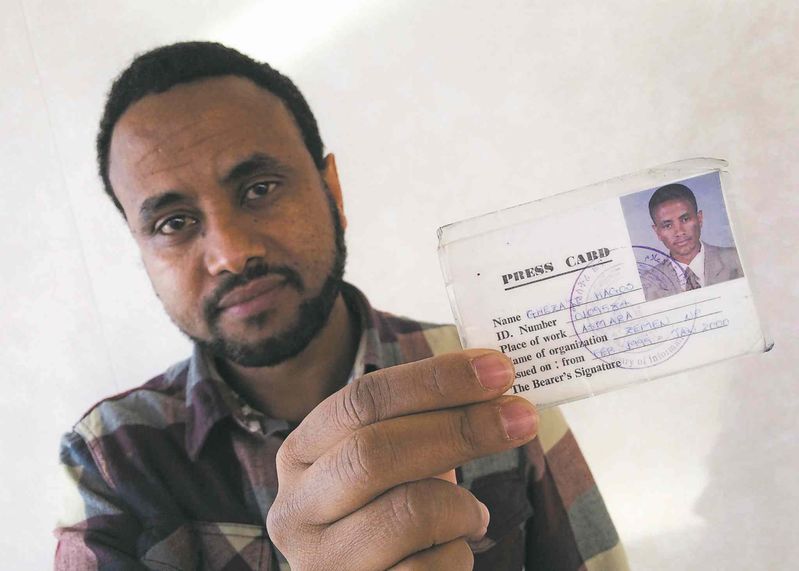Eritrea: City man laments deaths of reporters

LAST year was a bad one for reporters in many parts of the world.
In 2014, at least 66 were killed while working, 119 were kidnapped and 178 were imprisoned, says the annual report of Reporters Without Borders.
This is the tip of the iceberg," said a former reporter and Winnipegger, Ghezae Hagos, who got out of Eritrea before it began locking up journalists in 2001.
Eritrea shut down its independent press and is ranked today as the world's worst place for press freedom. Reporters Without Borders' 2014 press freedom index looked at 180 countries and ranked Eritrea at the bottom -- behind North Korea and Turkmenistan "where freedom of information is non-existent." The report said the three countries "continue to be news and information black holes and living hells for the journalists who inhabit them."
Hagos knows what they mean. His best friend and former editor Amanuel Asrat has been in prison in Eritrea since September 2001.
He and Asrat's family aren't even sure whether the editor-in-chief of the Zemen newspaper is alive.
An Amnesty International report on Eritrea this year said: "Thousands of people are currently held incommunicado in arbitrary detention for questioning government policies, for their work as journalists, for practising a religion not recognized by the state or for evading national-service conscription."
The report said many of those detained are prisoners of conscience who have never been charged with a crime, tried or brought before a judge, and hundreds have been held for nearly 20 years.
The jailing of Asrat and other reporters is what compelled Hagos to advocate for human rights in Eritrea after he came to Canada, he said.
"I keep my press card in my wallet," said Hagos, who now works with newcomers in Winnipeg. "I've kept it for 14 years as a reminder of what I was and what happened," he said.
"Since September 2001, no private press has been allowed in Eritrea. Most of the journalists were arrested or disappeared," he said.
"If you control the journalism, you control everything," said Hagos. An independent press is "the first pillar of government," he said. "Without it, people have no way of knowing what is the truth.
"The only media is government media," he said. "And even journalists who worked for the government media have been harassed and imprisoned," Hagos said on the one-year anniversary of the imprisonment of Canadian-Egyptian journalist Mohammed Fahmy with two of his Al Jazeera English colleagues. They've been locked up in Egypt on terrorism-related charges widely viewed as trumped-up for political reasons.
"For the people to have freedom of speech and freedom of the press taken away after they brought them to power is very ironic and very sad."
This email address is being protected from spambots. You need JavaScript enabled to view it.


![[AIM] Asmarino Independent Media](/images/logo/ailogo.png)